What's so great about Roam Research? Comparing Evernote, Notion, the actual use case sharing of electronic handbook "Yu Sanjia" and Roam
In ordinary life, the distinction between adults and children is usually whether they have married or not. Of course it's about sex.
When I was a child, I couldn't help thinking that as long as I wasn't married, I could always receive red envelopes on New Year's Day or Children's Day without giving them away. There are many such leap-forward moments in life. Knowledge of foreign languages can also be included, after all, language is generally recognized as a window to enrich life (if you want to define what it means to be “knowledgeable”, let’s speak foreign languages in dreams). Perhaps only the emergence of Roam Research has changed so much in recent years.
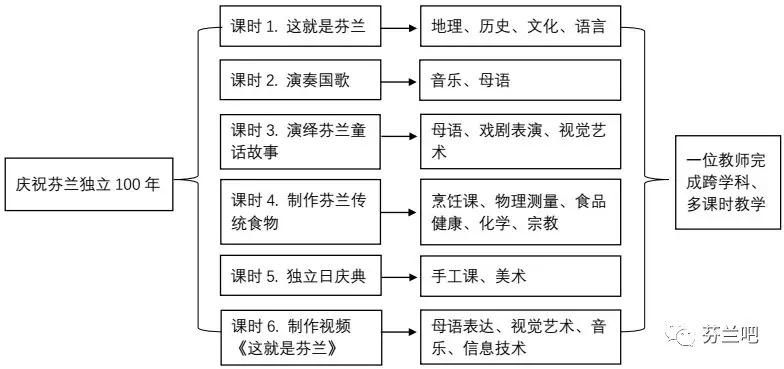
There is a widely circulated news that Finland has abolished primary and secondary subjects, and there is no longer a distinction between Chinese and mathematics. This is obviously a misunderstanding. Fundamental subjects will not die out. The key to Finnish education reform is to try to switch from traditional subjects (Subject) to teaching based on topics (Topic) and phenomena (Phenomenon). So what is thematic and phenomenal education? Take the course "100 Years of Finnish Independence", which is usually classified as a history course in traditional education. After the reconstruction, students can not only learn history and geography through the course, but also practice language and culture, music and drama, cooking craftsmanship, video editing and other skills, which are more pragmatic and entertaining. The disruptive nature of Roam is also about bottom-up.
Before the advent of Roam, Evernote and Notion were the two most representative “notebook” applications. In my opinion, they are all “handbooks” in the digital age. In September 2020, Notion officially declared war on Roam Research, Evernote also announced the return of the "elephant" with 10.0, the electronic handbook "Yu Sanjia" is full of gunpowder, and the war of "data room vs life operating system vs second brain" is official ring. What are the characteristics of these three applications? What use cases are you good at? Where is the advantage of Roam?
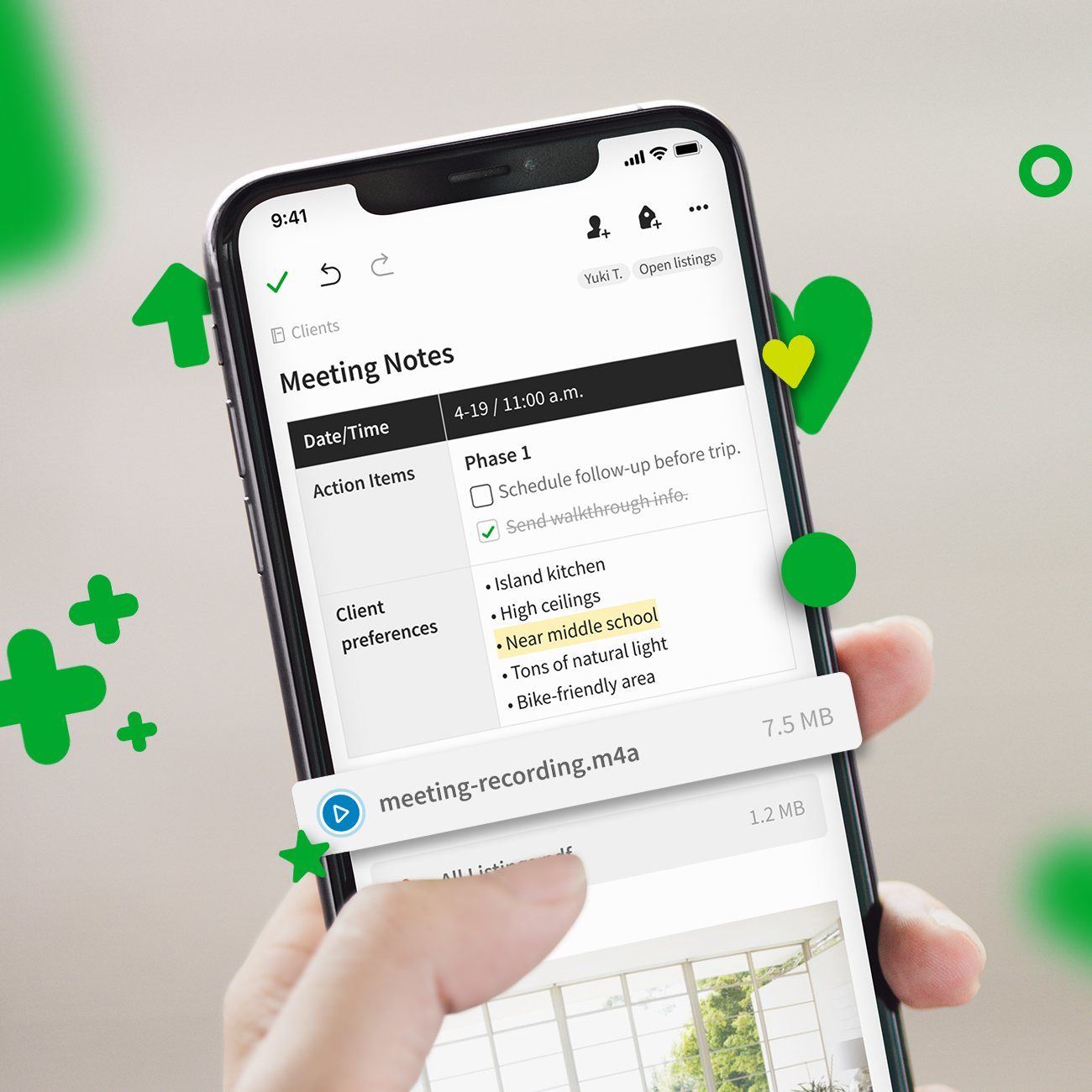
Let's talk about Evernote (referred to as EN). Before the elephant of EN, most people were still using the system's own file system, that is, Windows' "Explorer" or Mac's "Finder". EN is indeed a powerful tool when we need to deal with light content such as fleeting inspiration, memos written down, and good words and sentences copied from books. For example, the layers of folders are like a large room surrounded by small rooms, where various objects are placed at equal distances; what EN does is equivalent to pre-installing data racks and file cabinets in the room.
The advantages and disadvantages of EN are quite clear, the so-called blessing and misfortune. It is easy to access, and many platforms and APPS are connected to EN, which once made it a transfer station for information, which also brings the chronic problems of bloat and high delay. After I started using EN in 2011, I have never paid any fees (60M per month to budget carefully). I have tried alternatives such as Simplenote, Zoho's Notebook, and Agenda. Writing tools such as Ulysses and Bear are also in the same vein as EN.
Finally, EN launched a new version 10.0, the interface has a new look, the editing and search functions have been redone, and the adjustment of the underlying code also makes the operation feel lighter. After years of low tide, the elephant said it was back. The future of EN is still worth looking forward to. After all, any home or company needs a reference room, and it is also necessary to regularly paint the walls and clean the dust. It is a pity that the area outside the reference room has long been fully taken over by Notion.
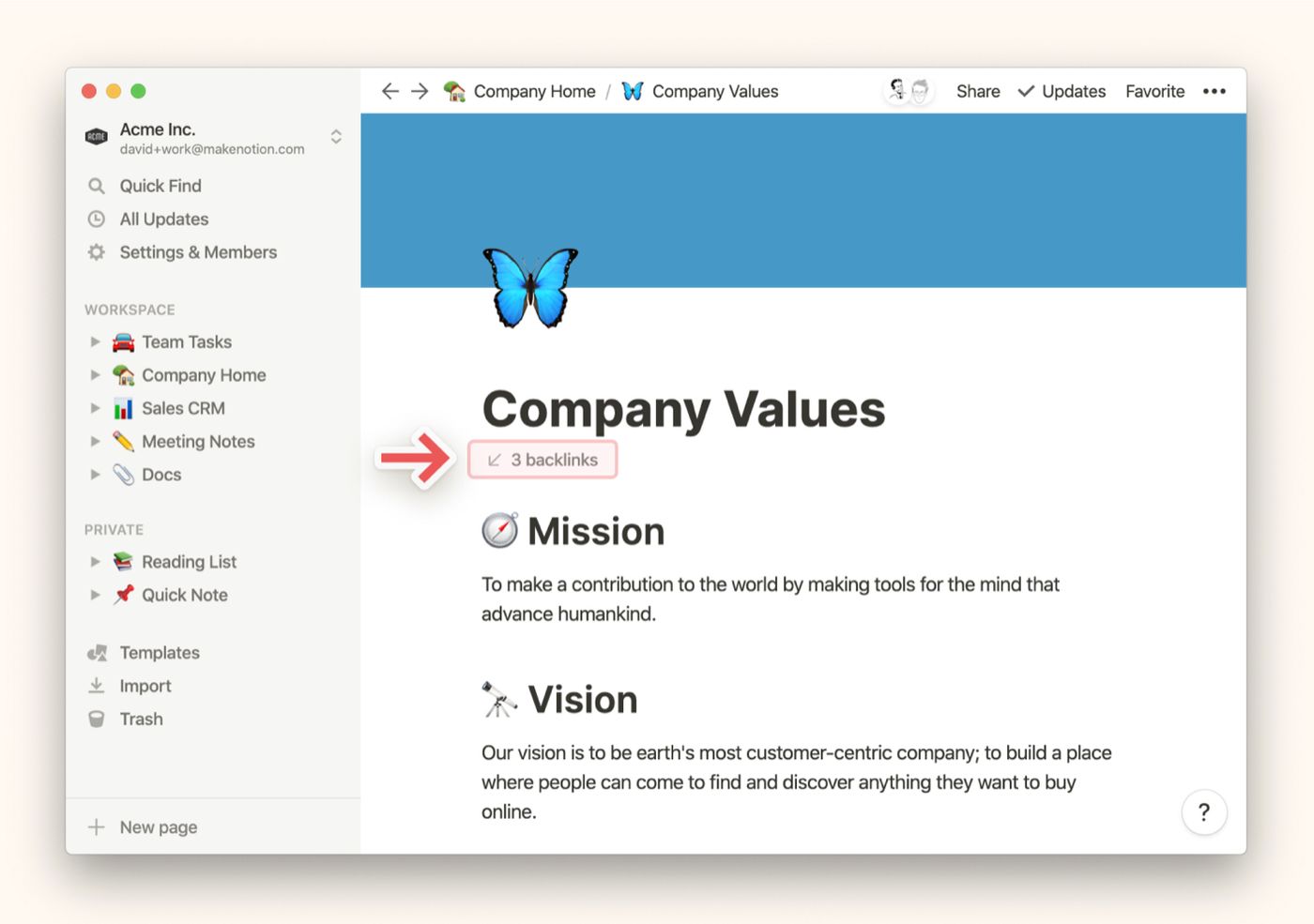
At first, I thought Notion (NO for short) was a combination of Evernote and Google Docs. NO kept up with the wave of multi-person real-time editing, making it competent for small teams to collaborate and communicate, and compete with platforms such as Trello and Slack. Regarding product positioning, NO official website gives a fairly accurate definition, NO's goal is to become your "LifeOS" life operating system.
Like a smartphone, NO's modular design is like installing software for specific functions in the phone. Dozens of pre-made templates encourage users to be creative, choose, modify, and optimize them to create their own operating system for life. For a time, NO is almost omnipotent. As long as the database is used well, accounting, memorandum, TODO... Most of the functions of "efficiency APPS" can be realized in NO.
Someone on Twitter pointed out the reason why I don't like NO: I just want to take a piece of paper and a pen to write something, but you force me a spaceship. totally agree! Although NO is a sophisticated mechanism that gives users unlimited freedom like Lego blocks, not everyone views life in this top-down way. Roam Research (RR for short) is just the opposite, using a bottom-up attitude to grow savagely. NO announces support for backlinks, new pages with "+" or "". This obvious "reference" behavior forced the founder of RR to fight back. He said that in the winter of 2019, he approached NO to talk about investment due to the exhaustion of funds (it seems that the price was 300,000 for 1 percent of shares). When NO refused, he said that they were not flawed. Today, a large number of users are willing to pay $15 a month or directly pay $500 for a 5-year license.
The emergence of Roam Research is closely related to the Zettelkasten card box note-taking method of the German scholar Niklas Luhemann. In fact, outline APPS such as RR have already existed, and WorkFlowy is one of the best. Outline writing clarifies ideas through levels, and the concise interface helps to focus on specific paragraphs, and the operation is extremely fast. Based on the outline, RR combines the advantages of Bullet Journal bullet notes and card box notes, and is closer to the way the brain meshes work. Imagine that each paragraph and idea is a card. Cards not only exist in a time series, but are also classified into different themes. Cards can be related to each other, which is very convenient in Roam.
Evernote, how many have you heard and used? Notion is quite polar, too many APPS can replace light usage scenarios, and complex advanced functions can’t be explained in a few words; Roam Research appeared the latest and the least popular, the following are my few This is a practical use case, and I hope to use this as a guide.
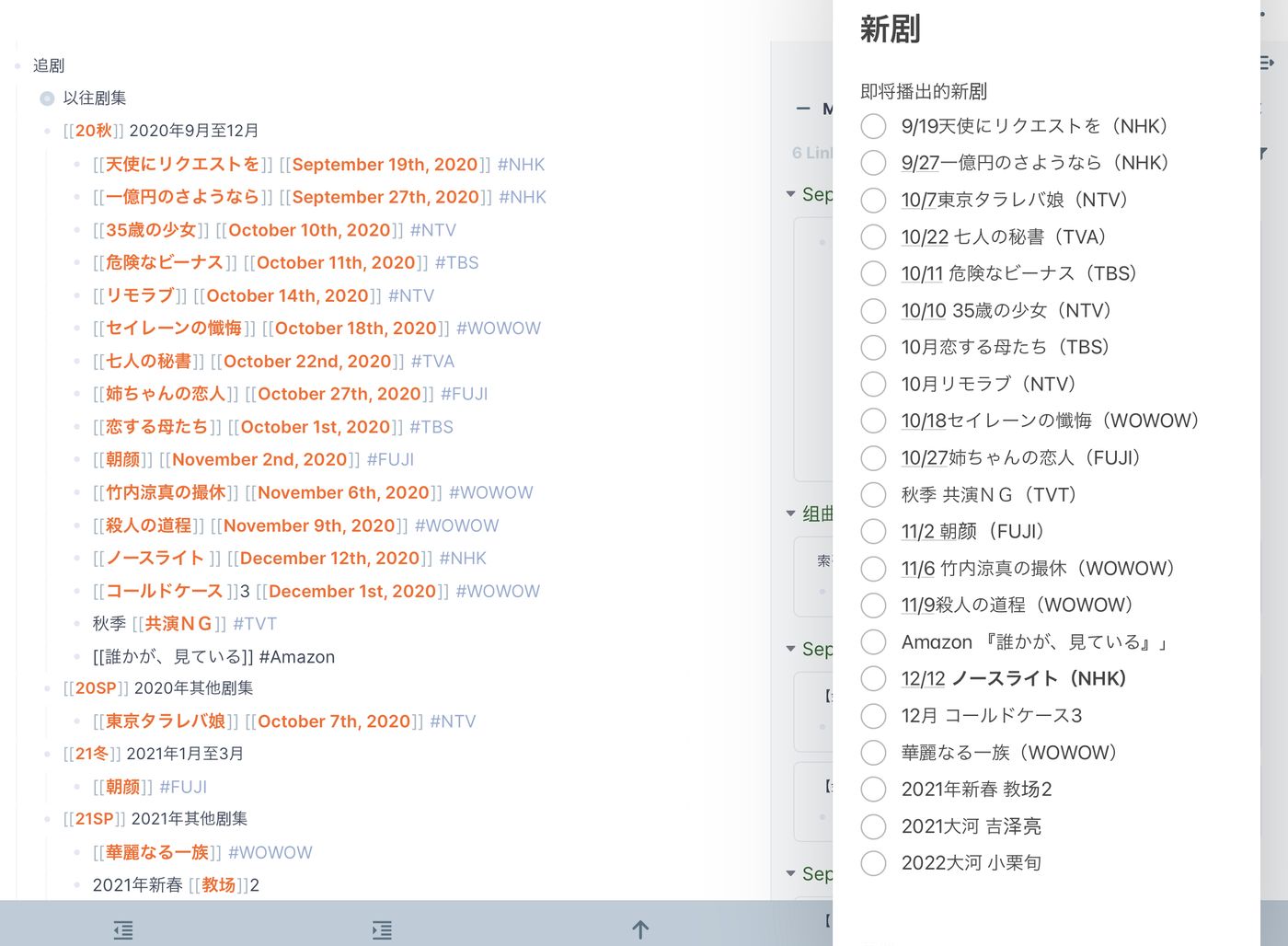
1) Memo is one of the most basic functions of efficient APPS. The development threshold is extremely low. Of course, Roam can also be competent for TODO and memo. Today, I transferred my "Japanese drama start time memo" from Apple Notes to Roam. Apple's own memo (right in the picture) has always been my "draft", storing text or pictures that do not need to be backed up. After transferring it to the outline Roam (left in the picture), the hierarchy is more clearly defined. The sub-entries under [Autumn 20]" are collapsed.
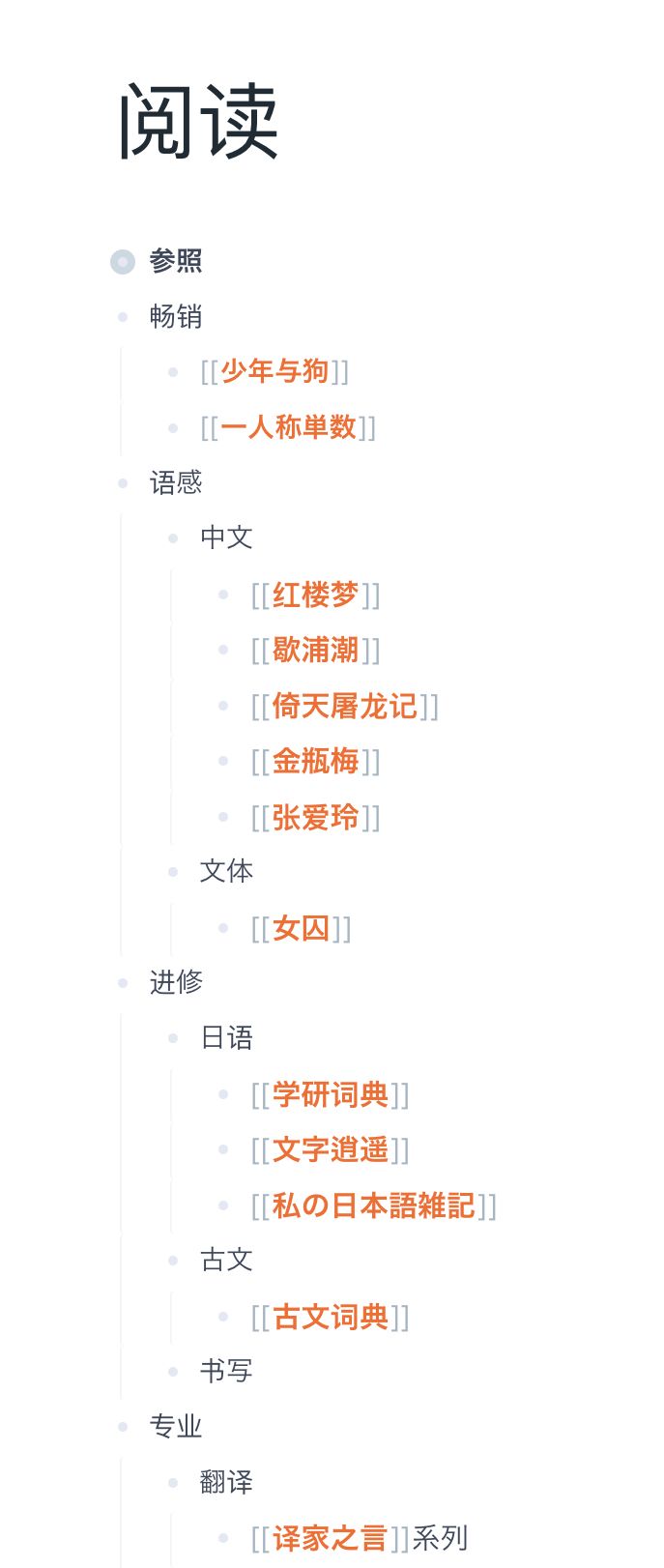
2) Another use case is "reading lists". I use Roam's outline level to divide the books to be read into several categories, such as bestsellers, language sense, advanced studies, and majors. See at a glance how many books are in each subcategory to read. Clicking the title in "[]" will jump to that page, similar to Wikipedia.
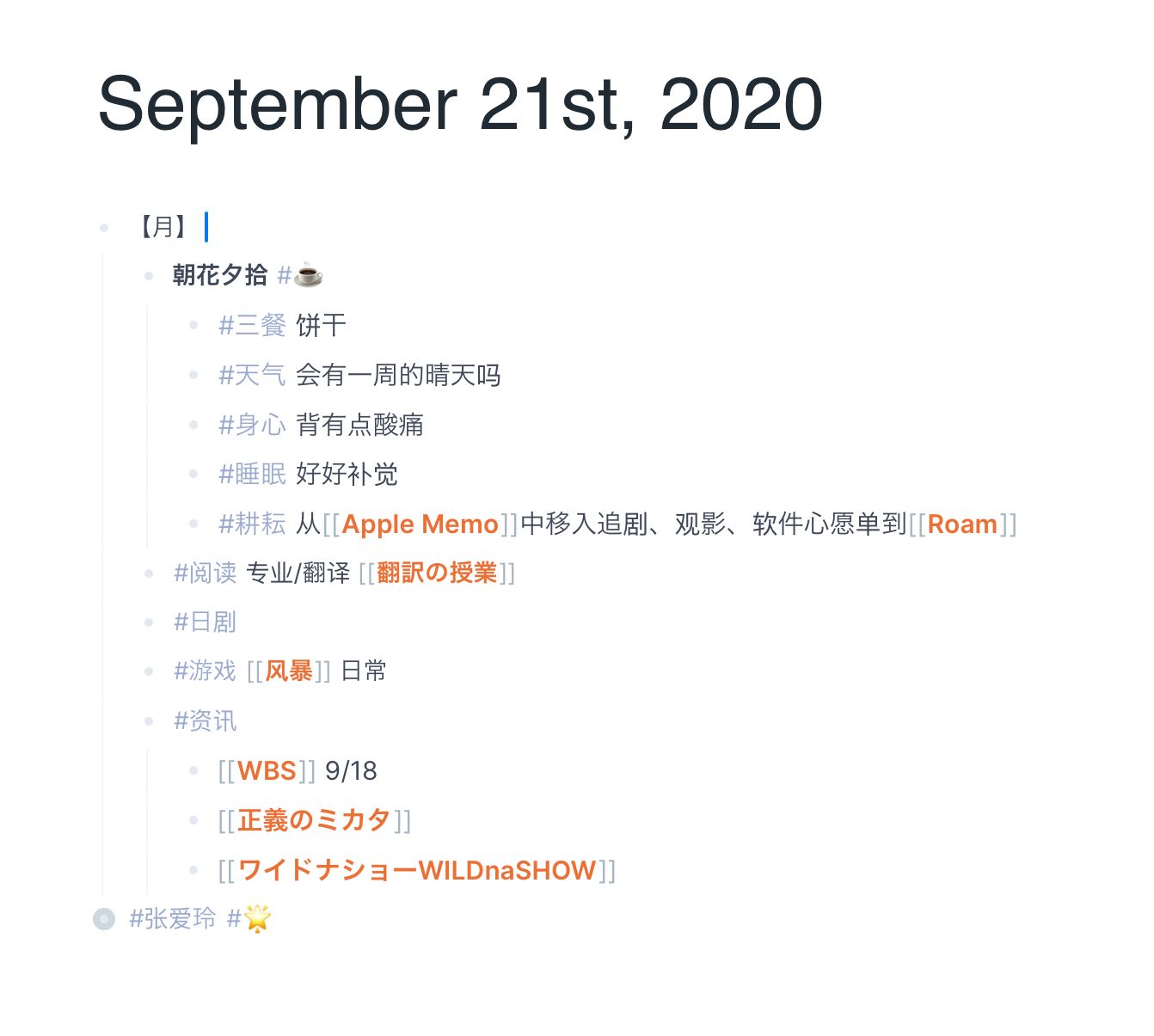
3) In order to record three meals a day, the amount of water and sleep, the ups and downs of mood, etc., I have tried no less than 10 APPS. Although the UI interface of these applications is beautifully designed and data charts are automatically generated, the "hotness" is difficult to exceed "three minutes". Always "accidentally" forgetting that one at first, then doubts arise until they are no longer used. And so on and on. Another major feature of Roam is the default daily view, just like the common "one page a day" paper handbook. My usage is to paste a set of pre-written templates every morning, make a "Daily Record Lifelog" under the "Chao Hua Xi Shi" column, and then record the gains of reading, chasing dramas, watching programs, etc. that day. After clicking "#weather", all the content with this tag will be listed for easy tracking and review.
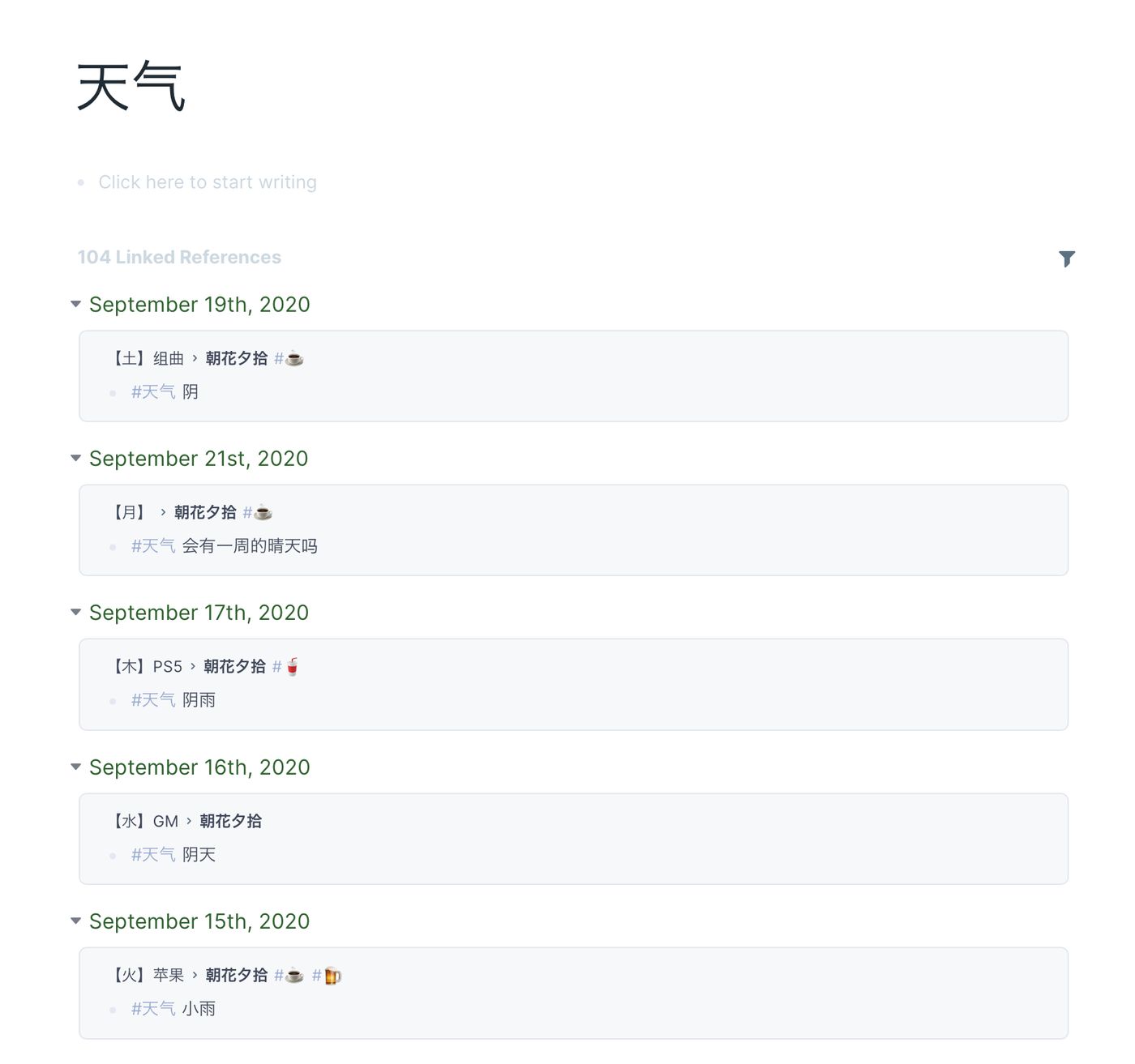
4) I never keep a diary. I got a very beautiful notebook when I was a child, but I gave up after a month or two. Unexpectedly, using Roam to record according to the template every day made me develop the habit of writing a diary in disguise. Roam is almost my longest running app, more than any APPS dedicated to cultivating good habits and recording daily moments.
Comparing these three types of applications, some people say: Librarians prefer Evernote, they look at the rows of books on the shelf and feel comfortable; Architects prefer Notion, they have drawn a blueprint in their hearts and are eager to try; they prefer Roam The other is the gardener, who feels the process of flowering and fruiting in the garden every day, watering and loosening the soil. I think if EN is a data room and NO is a life operating system, then RR is a digital "second brain".

Too many APPS stop at collecting information and data, and cannot help people think. Roam encourages "conversations" between cards, talking with past thoughts, notes, and talking with himself, and discovering differences through writing to deepen thinking. As the author of How to take smart note puts it:
"You might want to write the note already in dialogue with pre-existing notes, so really treating your system as a dialogue partner and answering to the note you're connecting the new one with, which is very different to just collecting."
Finally, let's go back to education reform in Finland. Education in the past had a strong top-down, hierarchical imprint. Previous-generation apps like Evernote replicated real-world files, folders, and cabinets, top-down, themed and then populated. Today, we no longer need to print and fax documents frequently, so why rely on A4-like pages?
Language may be linear, but human thinking is not.
RR is closer to the real operation of the brain and thinking, completely subverting the file, breaking up the content to form a network structure, and using a bottom-up method to help you organize your thoughts, and make them fully collide and relate, and finally converge to the Together. This is where Roam Research's innovative ideas break through dimensions.
Like my work? Don't forget to support and clap, let me know that you are with me on the road of creation. Keep this enthusiasm together!

- Author
- More